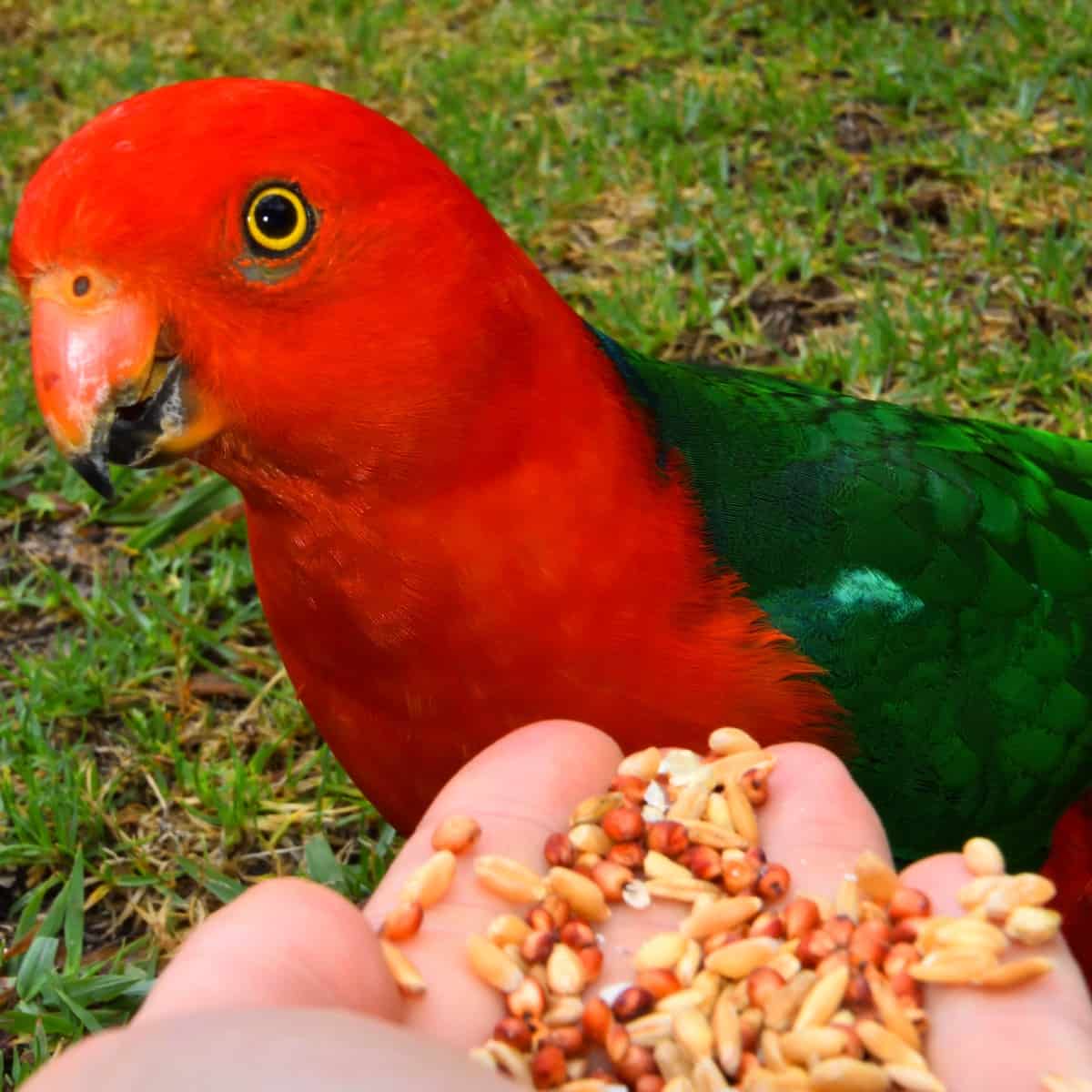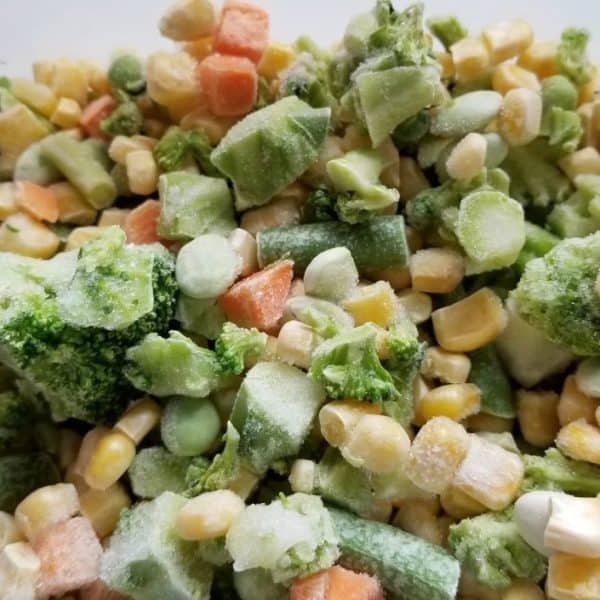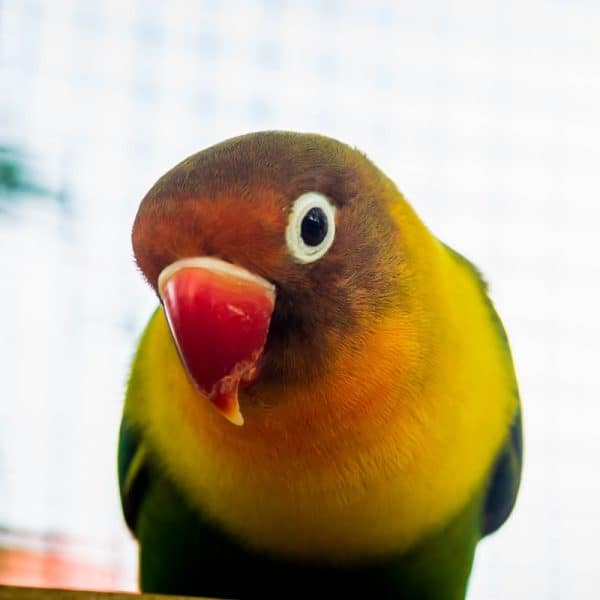Last Updated on by Mitch Rezman
Harold Writes:
I’ve been feeding my 12 conure and cockatiel friends Kaytee cockatiel Fortidiet and then top layer with Roudybush pellets for many years.
Their doctor objects to the safflower and sunflower as “too much fat”.
(I also feed vegetables) can you suggest a replacement for Fortidiet?
We can approach this a couple of ways, Harold.
It’s very difficult to eliminate safflower, sunflower, totally because it’s in 95% of bird food blends in that bird size range.
So because you are introducing Roudybush pellets that are nutritionally complete, you can consider going to a Parakeet or Canary seed blend which would have no safflower or sunflower but your conures might not appreciate such a small mix.
Because you are already serving Roudybush you may want to consider the Roudybush California blend which contains ingredients other than the pellets rounding out the diet.
Goldenfeast has a very good Conure mix called South American Blend which although it does contain safflower and sunflower components. They are a very small proportion of the overall mix.
Lastly, Higgins offers a line called Safflower Gold, which does have safflower, but it has no sunflower which eliminates part of the problem.
I hope this helps.
Pivoting
I’m troubled by your doctor’s statement “Their doctor objects to the safflower and sunflower too much fat”.
I ask rhetorically, what did he base that statement upon?
I know it’s difficult with multiple birds, we have 11 birds, to keep track of weights on a regular basis.
A Better Bird Ep 9 How To Easily Weigh Any Size Bird ~ Video
The reality is by weighing your birds at least once a month you will know if birds are maintaining, gaining, or losing weight.
If you look at a bag of Higgins Safflower Gold Conure, once you serve a bird a tablespoon or two you’ll see there’s not a heckuva lot of safflower seeds in the mix.
So ask yourself, better yet your veterinarian “If I have any underweight birds wouldn’t the fat in the safflower or sunflower seeds help with weight gain”?
Follow up question
“What if all my birds show consistent weights from month to month while eating safflower and sunflower seeds, why do I need to deprive them when we can all live with that occasional ‘McDonald’s small order of French fries’ or ‘KFC’s potato wedges’ (when no one’s looking)”?
Feathered factoid: Veterinarians get no formal classroom education on nutrition Endnote
(anyone can feel free to correct me on this)
MitchR
New question – What to feed my African grey?
It is difficult to properly recommend the correct food for any bird without knowing…
- the sex – Females need more calories if brooding – also more calcium
- the age – senior birds have unique nutritional needs
- the molt – twice a year birds lose all their 5000 – 7000 feathers (yes we counted as we poured them out of the vacuum) more calories are needed to replace those feathers which are made from amino acids which come from the protein in your bird food
- the eating style – does your bird like to eat with its foot? is it a dunker?
- the activity – a flighted bird that follows you around the house in the air needs more calories than a clipped bird sitting in a cage 20 hours a day
- the hormones – the elimination of soy may reduce hormonal activities in birds.
yeah we think about this a lot
Getting closer to an answer for you – cooked food found here is a great addition to your grey’s regular diet but it does not hold up throughout the day as it becomes a concrete-like texture.
Tail Feather Tips Microwaveable Higgins Worldly Cuisines ~ Video
For starters, I’m going to recommend Higgins Safflower Gold. It has seeds, nuts, fruit, and vegetables as well as Higgins InTune pellets for a well-rounded diet.
I would advocate providing foraging opportunities to make the eating time fun and an enriching event
Best – MitchR
Author Profile
Latest entries
 Feeding Exotic BirdsDecember 29, 2025How to Switch or Convert Your Bird From Seeds to Pellets: Real-Life Case Studies and Practical Guidance
Feeding Exotic BirdsDecember 29, 2025How to Switch or Convert Your Bird From Seeds to Pellets: Real-Life Case Studies and Practical Guidance Feeding Exotic BirdsDecember 16, 2025A Practical, Budget-Smart Guide to Feeding Birds Well
Feeding Exotic BirdsDecember 16, 2025A Practical, Budget-Smart Guide to Feeding Birds Well Bird EnviornmentsDecember 7, 2025Understanding Budgie Cage Bar Orientation: Myths, Realities & Practical Solutions for Vertical-Bar Bird Cages
Bird EnviornmentsDecember 7, 2025Understanding Budgie Cage Bar Orientation: Myths, Realities & Practical Solutions for Vertical-Bar Bird Cages Feeding Exotic BirdsDecember 5, 2025How Dr. T.J. Lafeber Rewrote the Future of Pet Bird Nutrition
Feeding Exotic BirdsDecember 5, 2025How Dr. T.J. Lafeber Rewrote the Future of Pet Bird Nutrition




laurelladesborough
17 Jan 2021It seems that we have some avian veterinarians who keep talking about those “bad sunflower and safflower seeds” and my question is HOW many courses in avian nutrition do avian vets take in college? Do those nutrition courses state that different parrot species DO require different diets? And WHY are some avian veterinairians recommending colored pellets, since DYES in colored pellets can cause extreme irritation to parrots when colored pellets are a major portion of their diet? And WHY do some avian vets recommend 80% pellets as the best diet for parrots when actual avian nutrition researchers have found that MAN MADE VITAMIN A is very poorly assimilated by parrots, builds up in the liver and can cause muscle spasms when the bird’s body has an overload of that A? Betacarotene which is found in fresh foods is the precursor to vitamin A and parrots can process betacarotene easily. The overload of A can cause an inhibition of the uptake of calcium from the blood into the muscles and that can cause muscle spasms. Why don’t avian vets acknowledge this problem with man made vitamin A which is in most pellets?